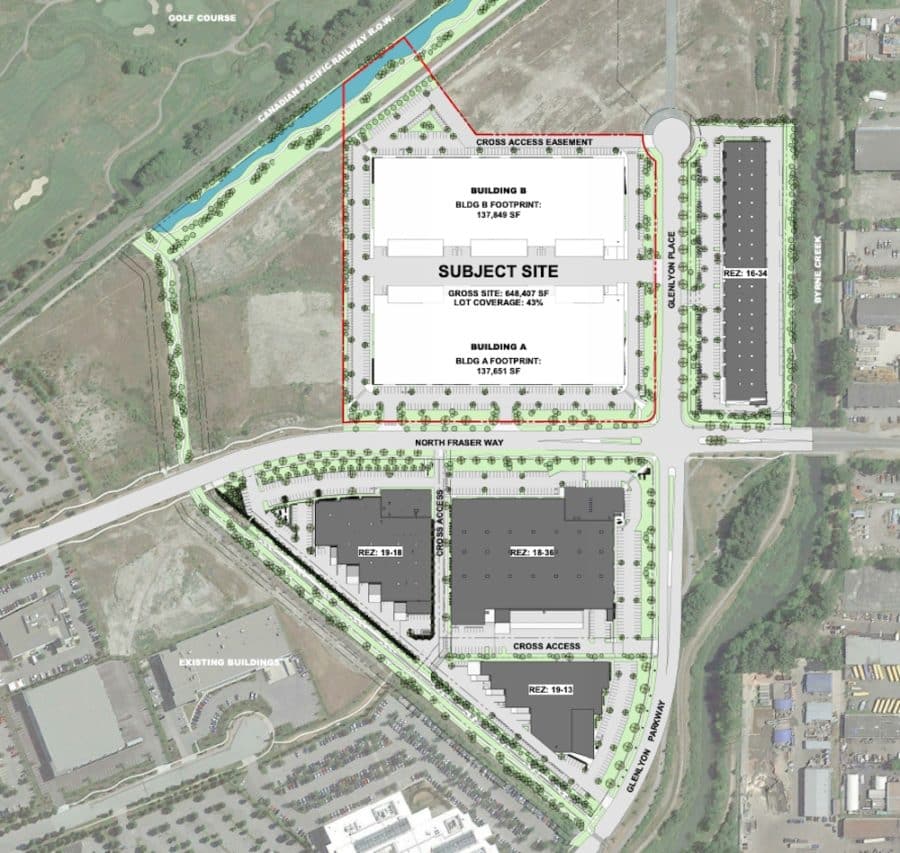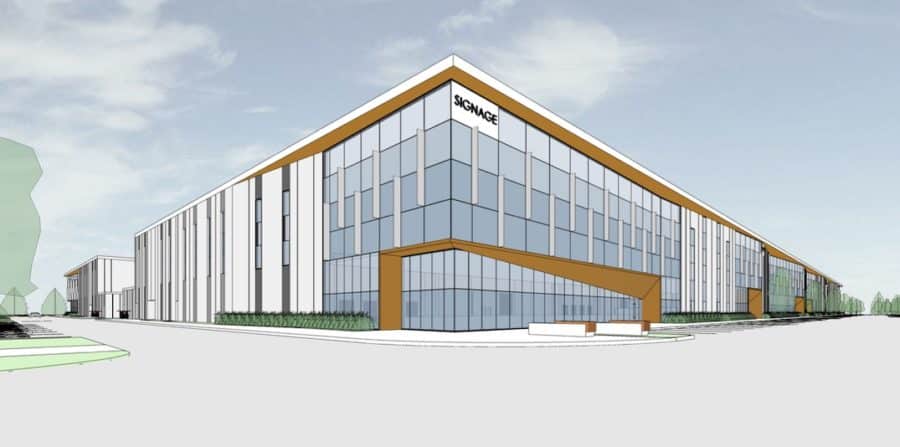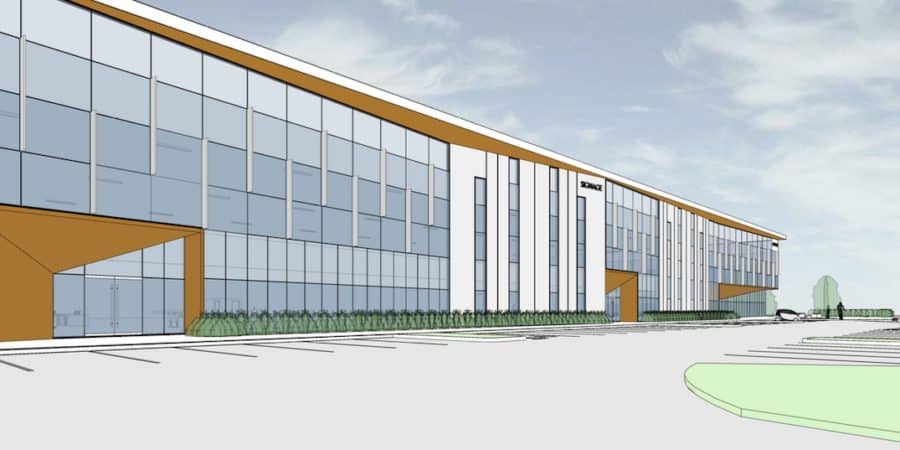Kenneth Chan, (DAILY HIVE) — A major warehouse development is planned for a large vacant industrial site just south of Riverway Golf Course in South Burnaby.
Beedie has eyed 5255 North Fraser Way — a 14.9-acre property at the northwest corner of the intersection of North Fraser Way and Glenlyon Parkway — into a two-building complex.
The project, designed by Taylor Kurtz Architecture and Design, incorporates 233,000 sq ft of warehouse space, plus 101,000 sq ft of warehouse-serving office space. The total floor area is 334,000 sq ft.

The gap between the north and south buildings creates a spine for the loading docks of freight trucks.
A total of 438 vehicle parking stalls will be provided, including 233 manufacturing warehouse stalls and 204 office stalls.
An amenity restaurant and cafe incorporated into the southeast corner of the south building, closest to the intersection, will serve building tenants and the area’s growing industrial-oriented businesses.


According to a city staff report, the redevelopment aligns with the municipality’s Glenlyon Concept Plan and Big Bend Development Plan, which established high quality and unique architecture to attract cleaner and lighter industrial users to the business park.
Other major tenants in this business park include the Canadian headquarters of Best Buy, Bollard Power Systems, LMI Technologies, PNP Pharmaceuticals, Houle Electric, and the headquarters of the Hospital Employees’ Union.
Over one million sq ft of industrial space has been built in the area, and Beedie plans on building another one million sq ft, including 5255 North Fraser Way.
Despite the current economic crisis, the demand for large-format industrial space is expected to remain strong due to Metro Vancouver’s strong economic fundamentals and the lack of available industrial land for such developments. In recent years, the region has seen some of the world’s largest rent increases for industrial space, with strong demand and the lack of new supply pushing the industrial vacancy rate to just 1%.
This has forced businesses to seek industrial space in suburban communities, where there is more availability and less road congestion hindering goods movement.
BC’s strong film and television production industry has also been one of the leading absorbers of large warehouses, converting these spaces into production and sound studios.
To view the full article, click here.